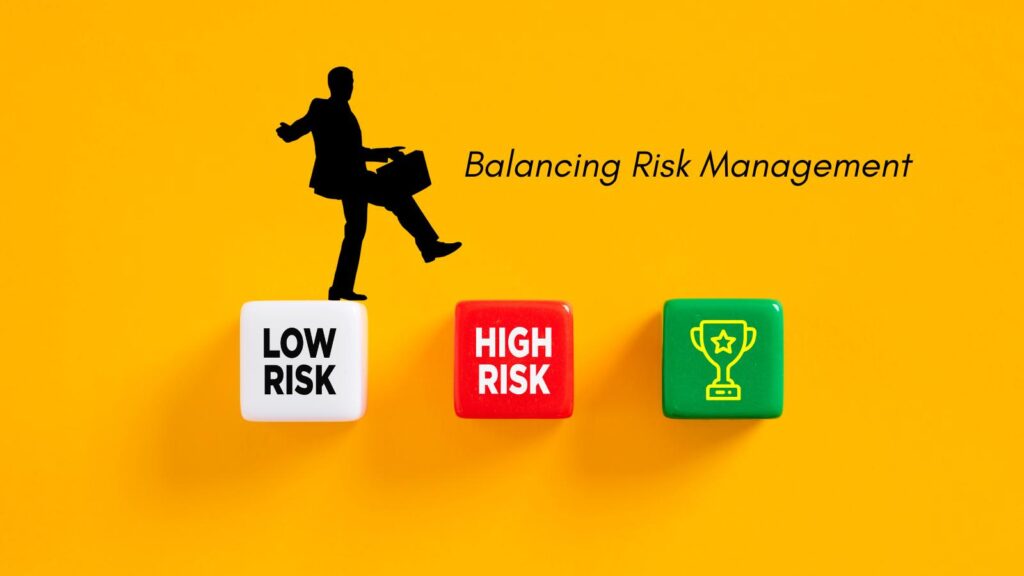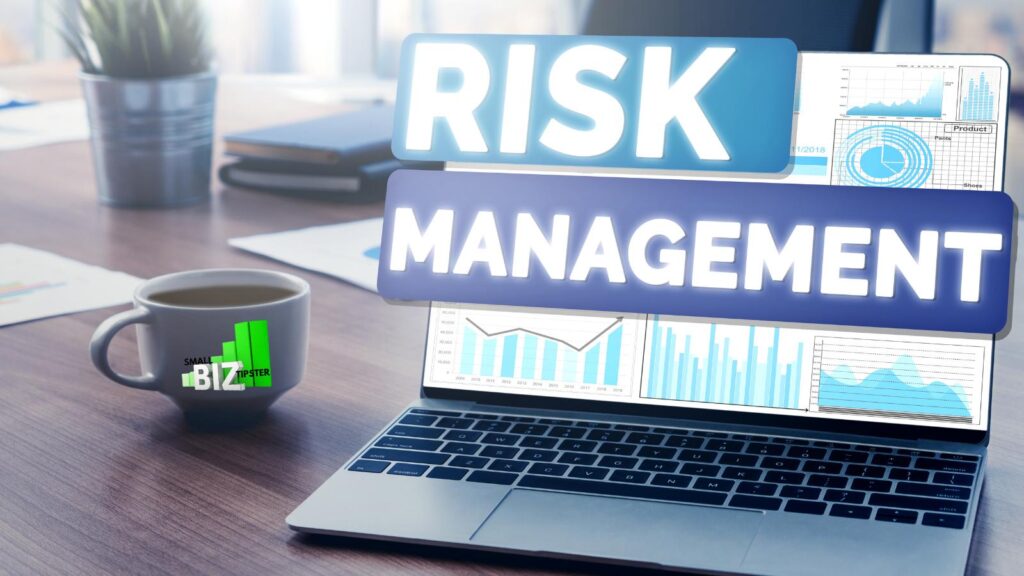Starting a business feels like standing on the edge of a cliff with a parachute you hope works. That’s risk management. There’s excitement, nerves, and a tiny voice in your head screaming, “What if I mess this up?” It’s okay.
You’re not alone. It would be safe to say there’s something wrong if you didn’t feel that way. The good news?
There are a lot of these mistakes you’re worried about can be dodged if you know what to look out for. Here’s the playbook to keep you steady when the ground feels shaky.
Table of Contents
Overlooking Market Research
The Mistake: Thinking, “If I Love It, They Will Too.”
We get it. You’ve got this brilliant idea and are convinced it will be a hit. But here’s the thing—just because you’re excited about it doesn’t mean there’s a crowd of people out there waiting to throw their wallets at you.
Tough love, but it’s true. Assuming people will care about your idea without proof is like trying to sell ice to someone already holding a snow cone.
The Fix: Get Nosy
Ask people what they think. Not just your friends (they’ll sugarcoat things to keep you happy), strangers—real, unbiased consumers. Surveys? Great. Small test runs? Even better.
Neglecting A Solid Business Plan
The Risk Management Mistake: Winging It Like A Pro Procrastinator
Imagine building a house without blueprints. You wouldn’t, right? (At least, I hope not.) So why do so many people dive into their start-ups without a game plan? It’s wild.
Without a plan, you’re just hoping for a miracle—and miracles aren’t exactly a reliable strategy.

The Fix: Channel Your Inner Planner
You don’t need a 50-page manifesto. Just sketch out the basics: What are you doing? Who are you doing it for? How’s it going to make money? Please write it down using a business plan template.
Just don’t leave it floating in your head—it’s too messy in there already. A simple roadmap can be the difference between clarity and chaos.
Ignoring Financial Projections in Risk Management Plans
The Mistake: Forgetting Money Doesn’t Grow On Trees
Let’s be real. Money stress hits differently when it’s your business on the line. And too many start-ups run out of cash because they didn’t think ahead.
Spoiler alert: there will always be something more expensive than you planned for. Running out of money isn’t just a setback—it’s often the end of the road.
The Fix: Overestimate Everything for Risk Management
Make a budget. Then add a little more because you’re likely forgetting something. Save for rainy days. And if you don’t know where to start, get help!
A small business accountant or budget software can save you from a lot of sleepless nights. The more you plan, the less you’ll panic.
Another key to having your budget work for you is to track your expenditures carefully. Loads of online service providers like Acodei do precisely this.
Skipping Legal Formalities in Risk Management
The Mistake: Acting Like Rules Don’t Apply To You
You’ve got enough to juggle, so dealing with boring legal stuff is probably at the bottom of your list. But skipping this step? Oh, it’ll come back to bite you.
Maybe not today, or not tomorrow, but someday—and it’s not going to be pretty. Legal mishaps can snowball faster than you think.
The Fix: Cover Your Bases Early.
Get your business registered. Sort out your taxes.
Protect your brand with trademarks if you’ve got one. Call a lawyer if you’re in over your head. It’s cheaper than fixing a mess later. A little prevention beats a lot of cures.
Hiring The Wrong Team for Risk Management
The Mistake: Bringing The Wrong People To The Party
Your cousin might be great at karaoke, but that doesn’t mean he’s the right fit for your start-up. Building a team isn’t about finding the cheapest option or hiring your besties.
It’s about finding people who bring something to the table. A mismatched team can drag down even the best ideas.
The Fix: Hire Slow, Fire Fast.
Take your time. Interview lots of people. Ask weird questions to see how they think. And if someone’s not pulling their weight? Let them go.
Your business deserves a team that’s as committed as you are. Every hire should make you stronger, not weaker.
Failing To Identify Key Risks
The Mistake: Flying Blind.
You know how they say, “What you don’t know can’t hurt you”? Lies. Risks are everywhere, and pretending they don’t exist won’t make them disappear. Ignoring risks is inviting disaster to your doorstep.
The Fix: Expect The Unexpected.
Make a list of everything that could go wrong. Sounds stressful, we know, but it’s worth it. From money woes to tech hiccups, plan for the worst.
Underestimating Marketing Needs
The Mistake: Believing “If You Build It, They Will Come.”
Just because you’ve created something amazing doesn’t mean people will magically find it. We’re all drowning in ads and content. Why would they notice you? Marketing isn’t optional—it’s how you get noticed in the crowd.
The Fix: Make Some Noise
Marketing doesn’t have to cost a fortune. Start small: social media, a website, maybe some clever email campaigns. Just get the word out there. Consistency matters more than a fancy budget.
And don’t be afraid to toot your own horn—it’s not bragging if it’s true. Visibility is the bridge between an idea and success.
Overextending Too Quickly
The Mistake: Trying To Be Everywhere At Once
Ambition’s great, but spreading yourself too thin? Not so much. It’s like trying to juggle while riding a unicycle—impressive if it works, but mostly a disaster waiting to happen. Rushing growth can unravel everything you’ve built.
The Fix: Focus On What Matters
Pick one thing at a time and nail it. Then move on to the next. Scaling too fast is one of the easiest ways to crash.
Remember, slow and steady does win the race sometimes. You don’t have to conquer the world overnight.
Via Pexels
Ignoring Feedback
The Mistake: Thinking You’re The Smartest Person In The Room
Your customers know more than you think. If you’re not listening to them, you are missing out on some serious value. Feedback isn’t criticism—it’s information for improvement.
The Fix: Listen More
Ask for feedback. Take it seriously, even when it stings. Use it to make your product or service better. The best businesses evolve because they listen, not because they think they’ve got it all figured out. Adaptation is survival.
Neglecting Technology And Cybersecurity
The Mistake: Thinking Hackers Won’t Bother With You
Small start-ups often think they’re too tiny to attract cyber threats. But guess what? Hackers don’t discriminate. One weak password, and you’re toast. A single breach can destroy trust in a heartbeat.
The Fix: Lock It Down
Use strong passwords. Get antivirus software. Then, back up your data. It’s not glamorous, but it’s necessary. Plus, looking tech-savvy builds trust with customers.
You want to be the start-up that gets it right. Better safe than sorry is the motto here.
Misjudging Pricing Strategies
The Mistake: Charging Too Much—Or Too Little
Pricing is important to get right. Too high, and people walk away. Too low, and you’re stuck working for peanuts. Either way, you lose. Your pricing sets the tone for your value.
The Fix: Find Your Sweet Spot in Risk Management
Research your competition. Know your value. Test different price points until something sticks. And don’t be afraid to adjust over time—it’s not set in stone.
Pricing is a dance—get comfortable tweaking it.
Overdependence On A Single Revenue Stream
The Mistake: Betting It All On One Horse is Huge Risk Management
Putting all your energy into one product or one big client? Dangerous game. If something goes wrong, you’re left scrambling. One crack in the foundation, and the whole thing collapses.
The Fix: Spread It Out
Think about what else you can offer. A new product, a subscription service, whatever makes sense. Diversifying isn’t just for investments—it’s smart for business. Think of it as insurance for your success.
Disregarding Customer Experience
The Mistake: Treating Customers Like Numbers
In the rush to grow your business, it’s easy to forget people who pay you. But if they don’t feel valued, they’ll leave.
And they’ll tell their friends to avoid you. Good customer experience
builds loyalty money can’t buy.
The Fix: Make Them Feel Special
Go above and beyond. Reply to emails. Fix problems fast. Say, thank you.
Happy customers stick around—and they bring their friends. Word of mouth is powerful, but only if it’s good.
Poor Networking And Partnership Decisions in Risk Management
The Mistake: Saying Yes To The Wrong People
Not all opportunities are good opportunities. And not everyone who wants to work with you has your best interests at heart. Bad partnerships can drag your reputation down with them.
The Fix: Be Choosy
Surround yourself with people who add value to your business and your life. Learn to say no when something doesn’t feel right. The right connections can change everything, so don’t settle. Partnerships should lift you, not weigh you down.
Starting a business isn’t easy, but it doesn’t have to be a nightmare. Mistakes will happen—that’s just part of the ride. The key is learning from them before they trip you up.
Risk Management: Summing it Up
Operational risk management often fails due to overconfidence, poor planning, or ignoring warning signs. Skipping regular reviews is another error. Teams sometimes underestimate risks or fail to prepare backup plans.
Miscommunication can leave vital players uninformed, leading to chaos when problems arise. Don’t rely on luck or downplay potential outcomes—clear processes and strong follow-through prevent costly mistakes.




